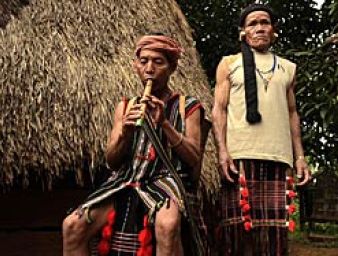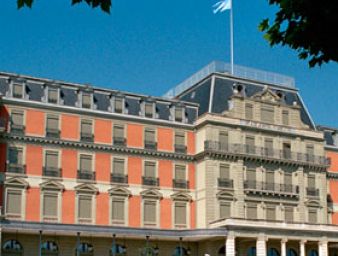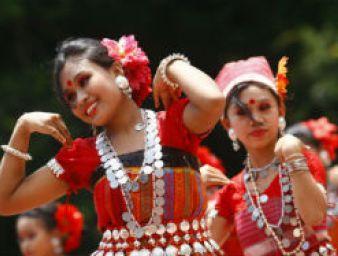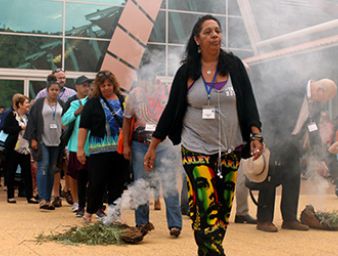In the Amazon rainforest, an indigenous tribe fights for survival
09 August 2022
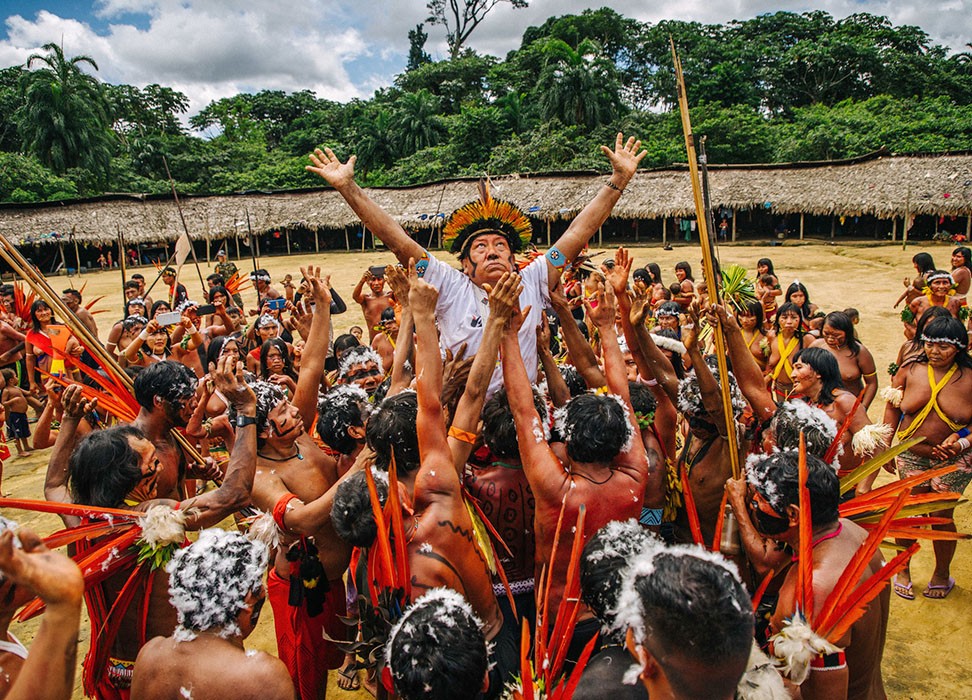
Deep in the Amazon rainforest, an indigenous tribe that has remained relatively isolated from the outside world is waging a battle for its survival.
For centuries, the Yanomami have inhabited a vast area of pristine forest and large, meandering rivers on the border between Brazil and Venezuela, living off fishing, hunting and fruit gathering.
Today, the Yanomami – who number about 29,000 – say they are at serious risk of losing their lands, culture and traditional way of life. The lust for gold and other valuable minerals that lay beneath their ancestral territory has in recent years attracted a wave of illegal prospectors who have cut down forests, poisoned rivers and brought deadly diseases to the tribe.
“Our land is again being invaded. Our rivers are again being polluted by mercury,” said Davi Kopenawa, a Yanomami leader who has dedicated his life to protecting Yanomami rights and lands in the Amazon.
Lust for gold brings death to the Amazon
Yanomami and local officials estimate there are more than 20,000 illegal gold miners, known locally as garimpeiros, on their homeland, even though the Yanomami territory is a nationally protected area where mining is banned.
Joenia Wapichana, the only indigenous woman elected to the Brazilian Congress, said the devastation caused by the garimpeiros and the powerful economic interests bent on exploiting the rainforest is posing a threat to both biodiversity and the very existence of indigenous life.
“The number of invaders has increased, both loggers and miners, who are at the service of people who have strong economic power, and organised crime is beginning to enter the territory. The environmental and health issue is getting worse and is putting the indigenous people at risk of extinction,” Wapichana warned.
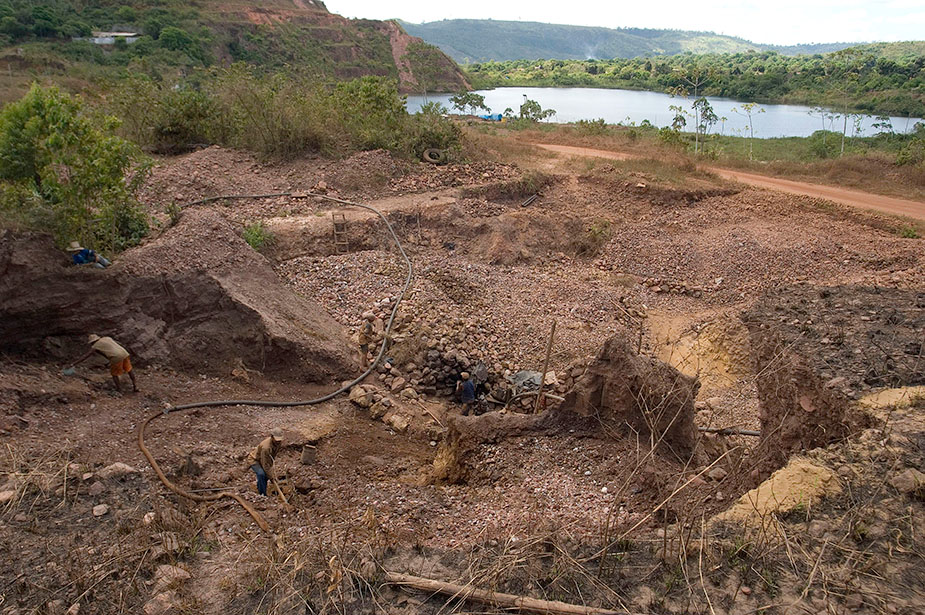
Garimpeiros, or gold prospectors, dug a massive crater as they mined for the precious metal in the Amazon Basin in a modern-day gold rush. Paulo Santos / Reuters.
Illegal mining is devastating to the Amazon’s environment, which holds a great spiritual value for indigenous people and is the source of their traditional livelihood, from food to medicines. Trees and habitats are destroyed, and the mercury used to separate gold from grit leaks into rivers, poisoning water and entering the local food chain. Mercury poisoning can harm organs and cause developmental problems in children, local activists said.
Malnutrition and malaria
But garimpeiros bring more problems other than mercury. Child malnutrition has skyrocketed because the Yanomami, who are mostly hunters and gatherers, can no longer rely on their traditional diet and have become dependent on imported food with less nutritional value. Malaria cases have also soared in recent years, the result of the gaping craters filled with stagnant water left by the garimpeiros becoming breeding grounds for mosquitoes that transmit the disease.
Sexual abuse of Yanomami women and girls is a grave concern, activists said, while alcohol and drugs brought by outsiders wreak havoc in tribal communities, particularly among the young, creating generational rifts and social unrest.
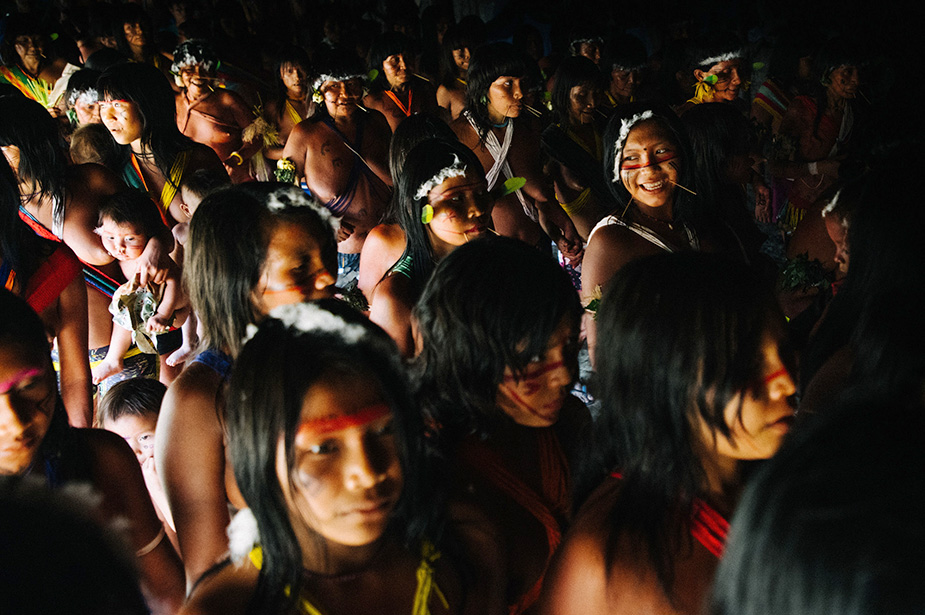
A group of young women and girls participate in a ceremony in the village of Xihopi. Christian Braga / ISA
Wapichana, who has led cases to defend indigenous rights before Brazil’s Supreme Court, blamed authorities for lack of political will. Activists say the number of garimpeiros have increased under President Jair Bolsonaro, who has vowed to develop the Amazon economically and tap its mineral riches.
“The Brazilian government must fulfil its protective role, where every Brazilian citizen, not just the Yanomami, feels protected. It is not a favour, but a constitutional obligation. It is necessary to curb the mining projects on indigenous lands because they are illegal under Brazilian law,” said Dario Kopenawa, vicepresident of the Hutukara Yanomami Association.
Despite the tribe’s predicament, leaders say they are determined to preserve their communities and ancestral land’s rich biodiversity. In a message to mark International Day of the World's Indigenous Peoples on 9 August, Wapichana called on governments to uphold the UN Declaration on the Rights of Indigenous Peoples, a comprehensive international instrument on the rights of indigenous peoples adopted by the General Assembly in 2007.
“
Without our land, we don't exist, and without land, there is no biodiversity, rivers, or animals. We, indigenous people, cannot survive without land. There is no harmony, no health, and there is no knowledge or movement of planet earth
“
Dario Kopenawa, vicepresident of the Hutukara Yanomami Association.
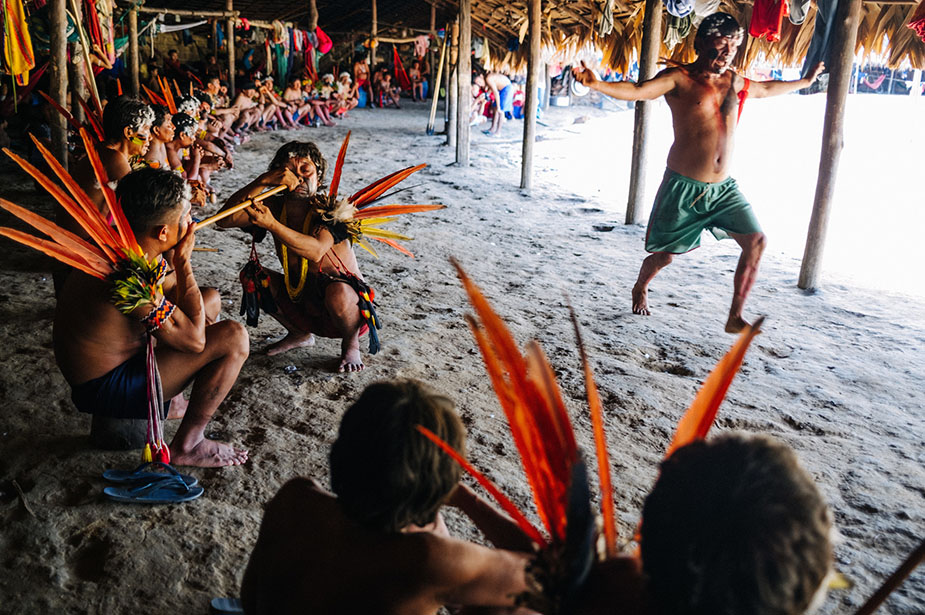
Yanomami shamans perform a ritual in Xihopi village. Christian Braga / ISA
Demarcation: A historic victory
The Yanomami, who live in circular dwellings under a communal roof made of palm leaves and wood built in the centre of a clearing in the forest, have witnessed invasions in the past.
Following worldwide protests, in 1992 the government of then-President Fernando Collor de Mello granted the Yanomami 94,000 square kilometres of protected territory, an area about the size of Portugal.
The demarcation was viewed as an historic victory for indigenous rights. Following a period of great suffering marked by violence, pollution and the influx of garimpeiros, the Yanomami people managed to recover.
Sydney Possuelo, who was then president of FUNAI, the government body in charge of the protection of indigenous peoples, said it took only four months to remove some 40,000 garimpeiros from the territory.
“The example from 1992 shows that if the government wants to remove the garimpeiros, it can,” Possuelo said.
At a recent gathering in the remote village of Xihopi, in the heart of the Yanomami territory, indigenous leaders and human rights activists celebrated the 30th anniversary of the demarcation of the territory.
The event brought representatives of governments and local and international organisations, who renewed calls on the State to take action to stop new invasions of garimpeiros.
“UN Human Rights fully supports the legitimate demands of Brazil´s indigenous peoples to remove illegal miners from their territories,” said Jan Jarab, the UN Human Rights’ Regional Representative for South America, who attended the event. “The indigenous peoples are the guardians of the Amazon rainforest and they must be protected.”
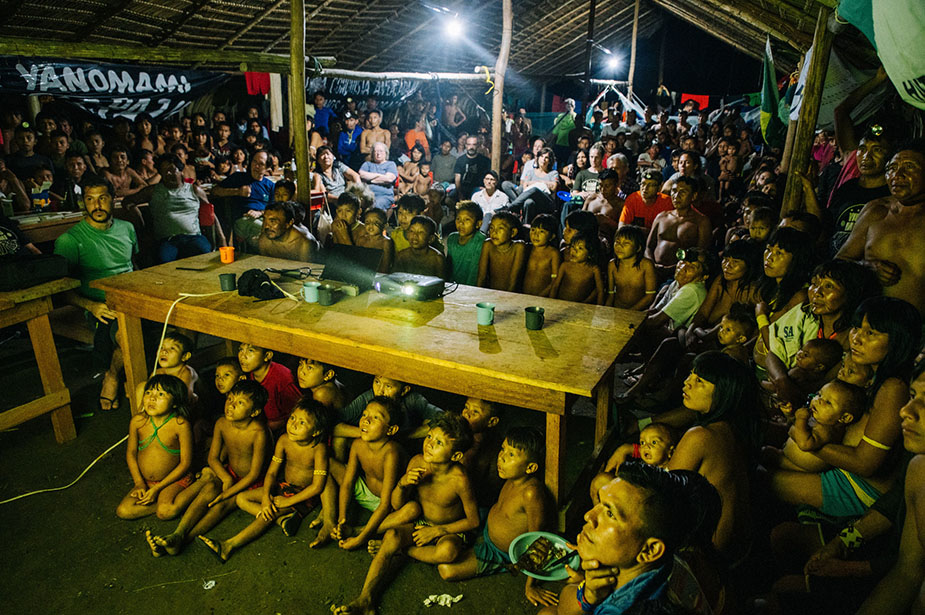
Yanomami children watch movies during the celebrations of the 30th anniversary of the demarcation of the Yanomami territory. Christian Braga / ISA
For four days, participants performed traditional rituals, danced, and shared stories under the village’s communal roof, or shabono. At night, children sat wide-eyed on the ground to watch films projected on a big screen. The mood at the village was mixed: While the demarcation anniversary remains a source of joy, the present and future of the Yanomami appear increasingly uncertain.
Wapichana, who participated in the celebration, said that nature and life are inseparable for indigenous peoples. As the planet grapples with the effects of climate change, the world should learn from indigenous values to take care of its forests and rivers and build a more sustainable development, she said.
“We have a responsibility towards nature and towards the environment to treat her like a mother, the mother who deserves all the care and protection, the mother who provides life, the mother who gives us food, the mother who cares for all of us.”
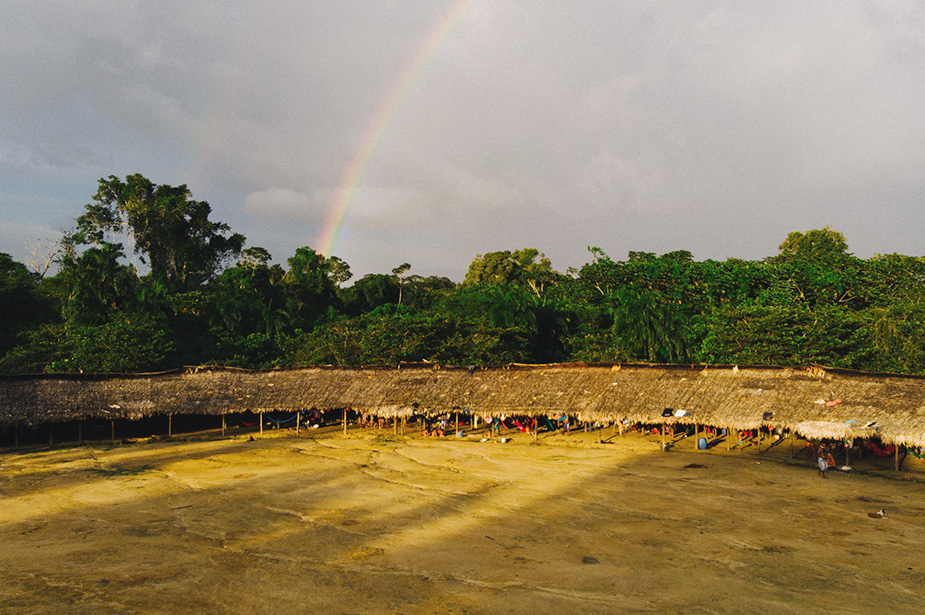
A rainbow is formed in Xihopi village. Christian Braga / ISA
